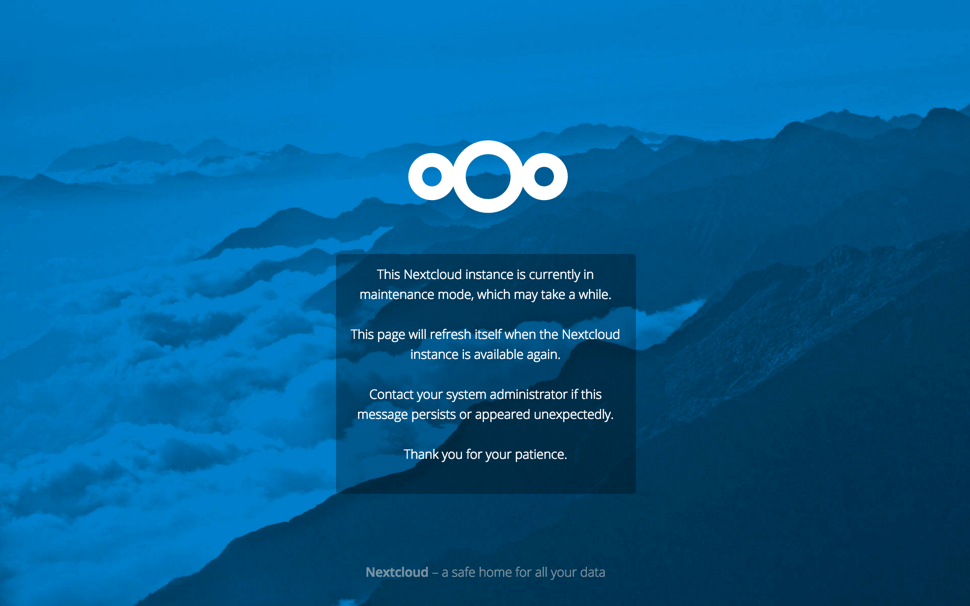Upgrade via packages
Upgrade quickstart
One effective, if unofficial method for keeping Nextcloud current on Linux servers is by configuring your system to use Nextcloud via a self-contained “Snap” package: a technology allowing users to always have the latest version of an “app”.
That version from Canonical is quite restrictive. It is not aimed at developers or advanced users who would want to tune their configuration by installing extra features. It is aimed at end-users who want a no-brainer solution. Install it, use it. No need to worry about updating Nextcloud any more.
It will work for as long as Canonical pushes releases, just like with any other Linux package maintained independently of Nextcloud.
Installation
Ubuntu
$ sudo snap install nextcloud
All other distros
Type the command to install snapd
Install Nextcloud ($ sudo snap install nextcloud)
1st login
After a successful install, assuming you and the device on which it was installed are on the same network, you should be able to reach the Nextcloud installation by visiting .local in your browser. If your hostname is localhost or localhost.localdomain, like on an Ubuntu Base device (IoT), nextcloud.local will be used instead.
You will be asked to create a password for “admin” and your favourite cloud will be ready
Note
Do not use on IoT devices yet. You probably don’t need these instructions anyway if you’re using Snappy Base 16.04 as it’s currently unreleased.
Make a fresh backup.
Upgrade your Nextcloud snap: sudo snap refresh nextcloud
Run occ upgrade.
Take your Nextcloud server out of maintenance mode.
Re-enable third-party apps.
Upgrade tips
Upgrading Nextcloud from a Snap is just like upgrading any snap package. For example:
sudo snap refresh nextcloud
Your Snap package manager only upgrades the current Nextcloud Snap. Then your Nextcloud server is immediately put into maintenance mode. You may not see this until you refresh your Nextcloud page.

Then use occ to complete the upgrade. You must run occ as your HTTP
user. This example is for Debian/Ubuntu:
sudo -u www-data php occ upgrade
This example is for CentOS/RHEL/Fedora:
sudo -u apache php occ upgrade
Upgrading across skipped releases
It is best to update your Nextcloud installation with every new point release, and to never skip any major releases. While this requirement is being worked on, for the moment If you have skipped any major releases you can bring your Nextcloud current with these steps:
If you are using a Snap package: sudo snap refresh nextcloud
If you did not install via a Snap package:
Upgrade your current version to the latest point release
Upgrade your current version to the next major release
Run upgrade routine
Repeat from step 2 until you reach the last available major release
You’ll find previous Nextcloud releases in the Nextcloud Server Changelog.
If upgrading via your Snap package manager fails, then you must perform a Upgrade manually.